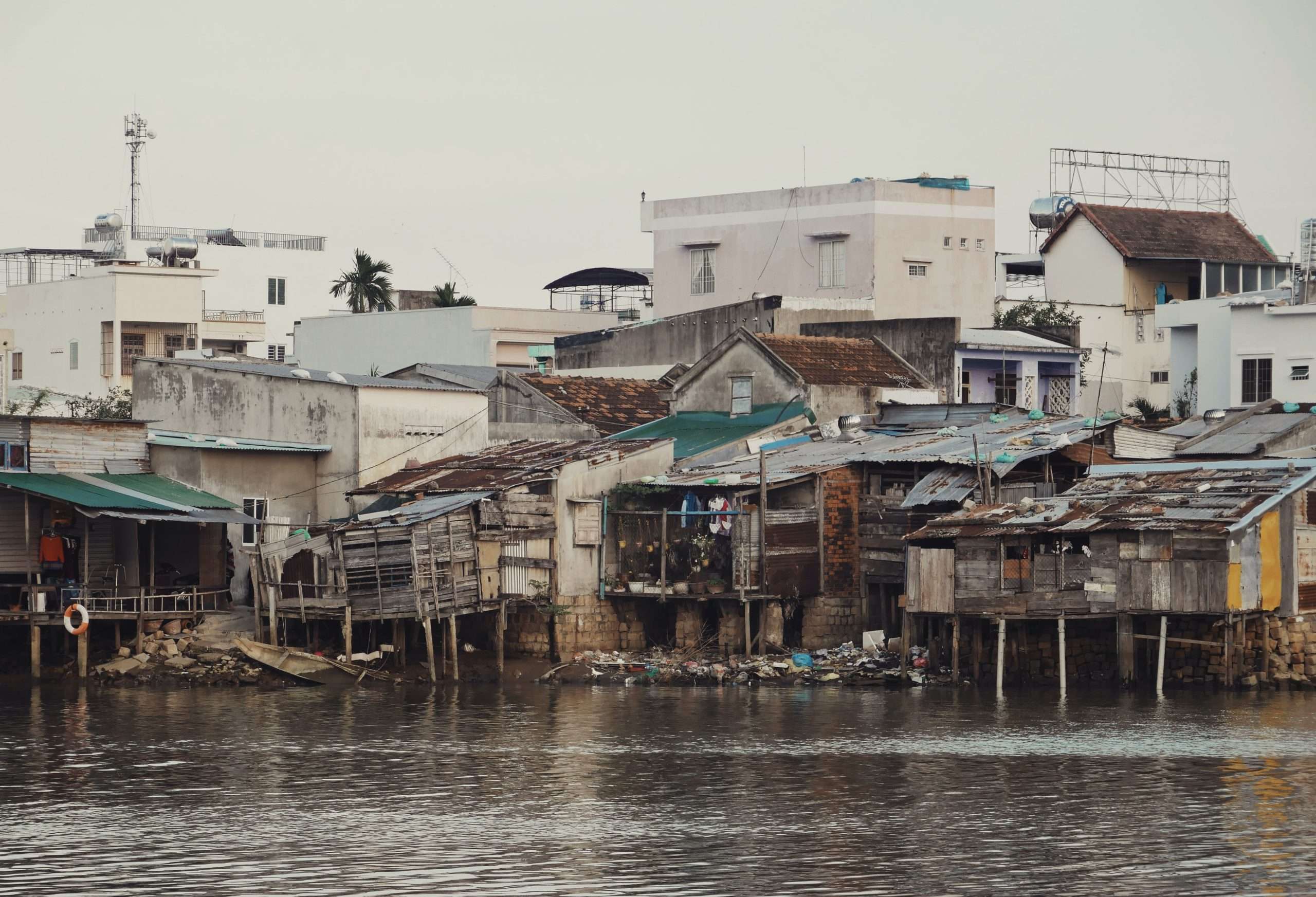The Causes of Poverty in Africa Despite Its Natural Wealth

Causes of Poverty in Africa
Causes of Poverty in Africa are many and varied, despite its diversity, they can be solved. Africa is home to some of the world’s most abundant natural resources, including oil, diamonds, and precious metals. Moreover, large part of the continent experiences sunshine almost throughout the year. The sun light is the source of all life in planet Earth. The continent is home of a large number of water bodies from Lake Victoria, Lake Nyasa, the Nile river, the Orange river, the Ruvuma river, the Ruaha river and much more.
Causes of poverty in Africa; Despite this, poverty in Africa has remained a persistent problem. Poverty affects millions of people in Africa, including children, women, and the elderly. While poverty in Africa is complex and multifaceted, this essay will examine the five most significant causes of poverty in Africa.
Poor Distribution of Resources
The first cause of poverty in Africa is overpopulation. While large population is seen by others as a source of poverty; it could also been seen as source of wealth when the human resource is well educated. Africa has the highest birth rate in the world, and the population is projected to double by 2050. Overpopulation puts a considerable strain on Africa’s already limited resources, including land, food, and water. As a result, many individuals and families are struggling to make ends meet, and poverty is widespread.
Corruption
The second cause of poverty in Africa is corruption. Corruption is a pervasive problem in Africa, and it undermines economic growth and development. Corruption in Africa takes many forms, including bribery, embezzlement, and nepotism. When government officials and business leaders engage in corrupt practices, resources that should be used to address poverty are instead diverted to personal gain.

Inadequate Education
The third cause of poverty in Africa is inadequate education. Education is vital to economic development, but many African children lack access to quality education. Without an education, individuals are limited in their career opportunities and ability to earn a living wage. This lack of education perpetuates poverty and contributes to the cycle of poverty that affects many African communities.
Legacy of Colonialism
The fourth cause of poverty in Africa is the legacy of colonialism. Colonization in Africa lasted for centuries and left deep scars on the continent. Colonial powers exploited African resources and divided the continent into arbitrary borders that did not reflect the cultural or ethnic diversity of the people. The legacy of colonialism has contributed to political instability, economic stagnation, and poverty in Africa.
Climate Change
The fifth cause of poverty in Africa is the impact of climate change. Africa is especially vulnerable to the effects of climate change, including droughts, floods, and other natural disasters. These environmental challenges have a significant impact on agriculture, which is the primary source of income for many African communities. The effects of climate change exacerbate poverty and limit economic growth in Africa.

How Do African Youth Deal with Poverty in The Continent?
The issue of poverty among African youth has long been a pressing concern. With a large portion of the African population being young people, their ability to deal with poverty is crucial for the overall development and stability of the continent. In this essay, we will explore various strategies and methods employed by African youth to combat poverty and improve their livelihoods.
To begin with, entrepreneurship has emerged as a prominent approach for African youth to tackle poverty. Many young people are taking the initiative to start their small businesses, often driven by innovative ideas and technology. These ventures not only generate income but also create job opportunities for others in their communities, ultimately contributing to poverty alleviation.
Another significant strategy employed by African youth is education. Despite limited resources and difficult circumstances, many young people persevere in pursuing education as a means to break free from the cycle of poverty. Efforts are being made to provide scholarships and sponsorships to financially disadvantaged students, granting them access to quality education that equips them with skills for better job prospects.
Furthermore, African youth are embracing agricultural practices as a means to combat poverty. Agriculture being a significant sector in many African countries, young people are leveraging this potential by becoming small-scale farmers or venturing into agribusiness. This not only helps create a sustainable livelihood for themselves but also contributes to food security and economic growth in their communities.
In addition, some African youth are turning to technology and digital platforms to create income-generating opportunities. With the increasing penetration of smartphones and internet access across the continent, young entrepreneurs are leveraging platforms like e-commerce, social media, and freelance work to overcome poverty. These avenues enable them to reach wider markets, find freelance job opportunities, and offer various services.
Moreover, empowerment programs and initiatives specifically targeting African youth are playing a crucial role in poverty alleviation. These programs provide young people with skills training, mentorship, and access to financial resources, enabling them to start their businesses or secure stable employment. By equipping them with the necessary tools and knowledge, these initiatives empower African youth to uplift themselves from poverty.
Additionally, many African youth are involved in various community development projects. These projects range from infrastructure development to environmental conservation and social welfare initiatives. By actively engaging in community-based projects, young people are not only addressing specific challenges affecting their communities, but also creating opportunities for employment and income generation.
Despite the aforementioned strategies, African youth also face numerous challenges in their efforts to deal with poverty. Limited access to capital and financial resources often hinder their entrepreneurial pursuits. Additionally, political instability, corruption, and inadequate infrastructure pose significant barriers to youth empowerment and economic progress.
Furthermore, the education systems in some African countries are often inadequate, with limited resources and low-quality instruction. This hinders the acquisition of relevant skills by young people, making it difficult for them to find decent employment opportunities and break free from poverty.
African youth are employing various strategies to deal with poverty in the continent. From entrepreneurship and education to technology and community development, young people are actively working towards alleviating poverty and improving their livelihoods. However, addressing the challenges they face, such as limited access to capital and quality education, is crucial for their efforts to bear fruit. It is imperative that governments, organizations, and stakeholders work together to provide the necessary support and create an enabling environment for African youth to thrive and overcome poverty.

How Do African Leaders Deal with Poverty in The Continent?
Poverty remains a pressing issue for many African countries, posing significant challenges to sustainable development and social progress. African leaders have recognized poverty as a priority concern and have implemented various strategies and policies to tackle this issue. This essay will explore the approaches adopted by African leaders to alleviate poverty in the continent, focusing on four key dimensions: economic growth, social investments, governance reforms, and regional cooperation.
Economic Growth
African leaders acknowledge that sustained economic growth plays a vital role in reducing poverty. They have implemented policies aimed at encouraging foreign investments, promoting entrepreneurship, diversifying economies, and creating employment opportunities. Initiatives like Agenda 2063 and the African Continental Free Trade Area (AfCFTA) demonstrate the commitment of African leaders to address poverty by fostering economic growth.
Social Investments
African leaders have recognized the importance of investing in social sectors such as education, healthcare, and social protection to address poverty systematically. Through initiatives like the United Nations Sustainable Development Goals and the African Union’s New Partnership for Africa’s Development, leaders have focused on ensuring access to quality education, strengthening healthcare infrastructure, and implementing social safety nets to provide basic needs to vulnerable populations.
Governance Reforms
Recognizing that corruption and weak governance contribute to perpetuating poverty, many African leaders have embarked on governance reforms. They have implemented measures to improve transparency, accountability, and public participation. Strengthening institutions, promoting the rule of law, and fighting corruption are crucial strategies pursued by leaders to ensure resources are directed towards poverty eradication initiatives.
Regional Cooperation
African leaders understand that the collective effort is essential to addressing poverty effectively. They have promoted regional cooperation through organizations like the African Union, Regional Economic Communities, and pan-African initiatives. Collaborative measures, such as sharing best practices, knowledge transfer, and joint infrastructure projects, have been undertaken to enhance regional economic integration and accelerate poverty reduction efforts.
Targeted Poverty Alleviation Programs
Several African leaders have implemented specific poverty alleviation programs to directly target the most vulnerable populations. Examples include social grants, conditional cash transfer schemes, and the provision of microfinance services for small-scale entrepreneurs. These programs directly address the immediate needs of the impoverished, contributing to poverty reduction and economic empowerment.
Agricultural Transformation
Most African countries rely heavily on agriculture for their economies and the well-being of citizens. African leaders have invested in agricultural transformation initiatives to enhance productivity, access to markets, and smallholder farmers’ capacity. By prioritizing rural development, promoting agricultural innovation, and ensuring access to credit and land rights, leaders aim to reduce poverty and enhance food security.
Empowerment of Women and Youth
Recognizing the potential of women and youth in driving economic growth and social development, African leaders have prioritized gender equality and youth empowerment. By promoting inclusive policies and providing support in the form of education, skills training, and access to finance, leaders aim to tackle the root causes of poverty and ensure sustainable development in the long run.
Infrastructure Development
African leaders understand that inadequate infrastructure hinders economic growth and perpetuates poverty. Investment in infrastructure development, including transportation, energy, and ICT, is considered paramount. Through partnerships with international organizations and mobilization of domestic resources, leaders aim to improve connectivity and create an enabling environment for economic development and poverty reduction.
International Partnerships and Aid
To address the magnitude of poverty in Africa, leaders have sought support from international partners, including bilateral donors and global financial institutions. Collaboration on debt relief, aid, and development assistance programs has bolstered poverty alleviation efforts. African leaders have also stressed the importance of fair trade policies, better terms of trade, and market access, recognizing the need for global solidarity to eradicate poverty effectively.
Monitoring and Evaluation
To ensure accountability and effectiveness in poverty reduction efforts, African leaders have prioritized monitoring and evaluation mechanisms. By building strong data systems, conducting impact assessments, and fostering evidence-based policymaking, leaders can identify gaps, modify strategies, and ensure that resources are being allocated optimally to tackle poverty.
African leaders have adopted a multi-faceted approach to address poverty in the continent. By focusing on economic growth, social investments, governance reforms, regional cooperation, targeted programs, agricultural transformation, empowerment of women and youth, infrastructure development, international partnerships, and monitoring and evaluation, African leaders strive towards sustainable poverty reduction and transformative development.
Conclusion on Causes of Poverty in Africa
In conclusion, poverty in Africa is a complex and multifaceted problem. While there are many factors that contribute to poverty in Africa, including civil conflict and disease, this essay has focused on the five most significant causes of poverty in Africa: overpopulation, corruption, inadequate education, the legacy of colonialism, and the impact of climate change. Addressing these causes will require a multifaceted approach that involves government action, international aid, and grassroots initiatives. It is time for the youth to know these causes and take action to address poverty in Africa.
References
Mkandawire, T. (2015). Neopatrimonialism and the political economy of economic performance in Africa: Critical reflections. World Politics, 67(3), 563-612.
Sachs, J. D. (2015). The age of sustainable development. Columbia University Press.
United Nations Development Programme (UNDP). (2019). Human development report 2019: Beyond income, beyond averages, beyond today: Inequalities in human development in the 21st century. United Nations Development Programme.


2 thoughts on “Youth Should Know The 5 Causes of Poverty in Africa Despite Its Natural Wealth”